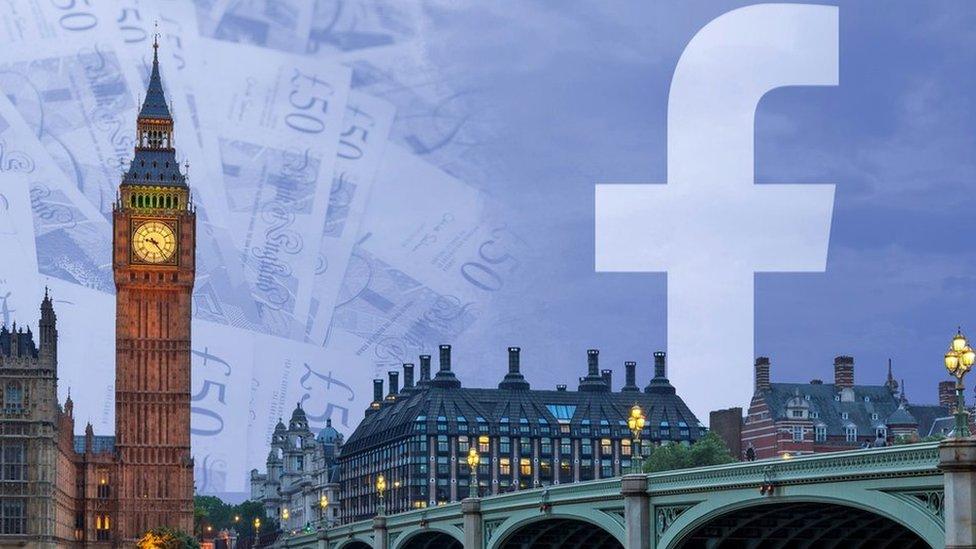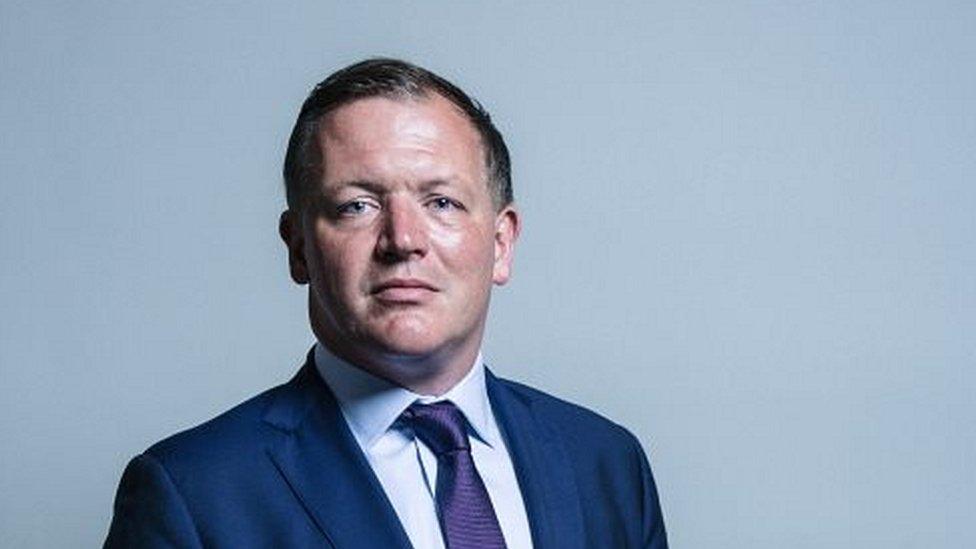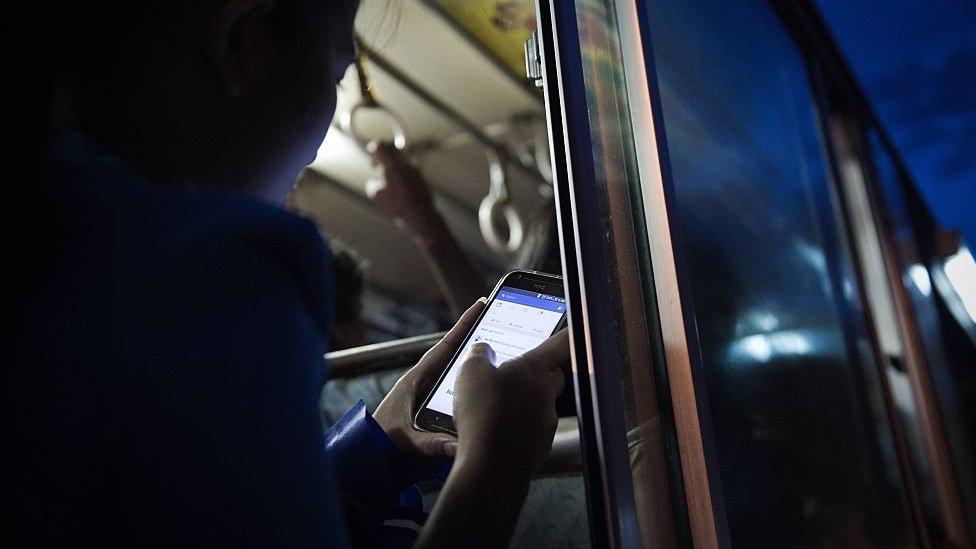MPs accuse government of complacency over 'fake news' on Facebook
- Published
- comments

The government is not taking the urgent action needed to protect democracy from "fake news" on Facebook and other social media, MPs have warned.
The culture committee wants a crackdown on the manipulation of personal data, the spread of disinformation and Russian interference in elections.
Tory MP Damian Collins, who chairs the committee, says he is "disappointed" by the response to its latest report.
The government says it is already considering action in many areas.
It has urged the committee to await the outcome of other reports and a consultation on beefed-up powers for the Electoral Commission to regulate digital advertising during elections.
But Mr Collins has accused ministers of making excuses to "further delay desperately needed announcements on the ongoing issues of harmful and misleading content being spread through social media".
When the Digital Culture Media and Sport Committee issued its interim report on fake news in July, external it warned that the UK faced a democratic crisis founded on the manipulation of personal data.
The MPs called for new powers for the Electoral Commission - including bigger fines - and new regulation of social media firms.
But of the 42 recommendations in its interim report, the committee says only three have been accepted by the government, in its official response, published last week, external.
And some - such as a levy on social media firms to fund digital literacy education and tighter limits on political donations - have been rejected outright.

Analysis
By BBC Technology Correspondent Rory Cellan-Jones
The DCMS Select Committee has been on a long journey with its fake news inquiry, roaming far and wide, and as time has gone on many of the MPs and in particular their chairman have become convinced they have discovered something rotten in the state of British democracy.
As the Cambridge Analytica scandal broke, they zeroed in on Facebook's role in the covert targeting of voters - only on Friday they published new information about a pro-Brexit advertising campaign launched by a mysterious organisation whose backers are anonymous.
But Damian Collins has consistently pushed for more action to tackle what he sees as the threat from fake news to democracy - in particular from Russia.
Now he and his colleagues, having recommended a wide programme of actions, believe the government has kicked most of it into the long grass.
But they are not giving up - they are promising their final report with more revelations in December.

The committee has backed calls from the Electoral Commission to force social media advertisers to publish an "imprint" on political ads to show who had paid for them, to increase transparency.
The government says it is considering such a move.

Damian Collins: More progress is needed from the government
Mr Collins also criticised the government's continued insistence that there was no evidence of Russian interference in UK elections, despite Prime Minister Theresa May's warnings about the "weaponisation" of "fake news" to disrupt votes in other Western nations.
The government insisted it was not being "complacent" and would take action against "hostile state activity" where appropriate.
But Mr Collins said: "We need to see a more co-ordinated approach across government to combat campaigns of disinformation being organised by Russian agencies seeking to disrupt and undermine our democracy.
"The government's response gives us no real indication of what action is being taken on this important issue."

The majority of Myanmar's population are members of Facebook
Mr Collins praised the government's efforts to tackle "hate speech" in Burma, which the committee said was "a further example of Facebook failing to take responsibility for the misuse of its platform".
Facebook insisted it was tackling the problem after UN investigators said the platform had played a "determining role" in stirring up hatred against Rohingya Muslims in Myanmar.
Mr Collins said he would be raising this and other issues with Culture Secretary Jeremy Wright, when he appears before the committee on Wednesday.
One thing the government and the committee do agree on is that "fake news" is a misleading term that has ceased to have any meaning.
The government says it now prefers the term "disinformation", which it defines as "the deliberate creation and sharing of false and/or manipulated information that is intended to deceive and mislead audiences, either for the purposes of causing harm, or for political, personal or financial gain".